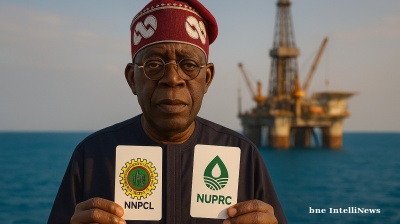Tensions in Kosovo escalated after the government in Pristina decided on September 20 to re-establish reciprocity with Serbia for vehicle registration plates, which sparked protests by ethnic Serbs in the country.
Under the measure, drivers from Serbia are forced to replace their license plates with temporary ones to enter Kosovo.
Kosovan police at the border crossings are not allowing any cars with Serbian license plates to enter the country, after Serbia has been forcing Kosovan citizens to equip their cars with temporary license plates to enter there for several years.
“We inform the citizens that for entering Kosovo they must be provided with temporary registration plates of the Republic of Kosovo, in line with today's decision of the Ministry of Internal Affairs,” the ministry said.
The registration plates must be placed in visible places and can be provided for a fee of €5. They are valid for 60 days.
Serb residents in the north of Kosovo launched a protest against the decision, keeping the roads leading to the border crossings with Serbia, in Jarinje and Brnjak, blocked.
The protest forced the Kosovo special police to send armoured vehicles to the border to control the situation.
Serbs near the border have set up tents to spend the night, and near them they have unfurled a large banner saying "Welcome to the Community of Serbian Municipalities", RTK reported.
The Community of Serb Municipalities, stipulated by the Brussels Agreement in 2012, has not been yet established, as the Constitutional Court has found that many of its points are in conflict with the Kosovan constitution.
In the vicinity of the border crossing Jarinje, cars are not able to move because the road has been blocked by trucks and cars, which have created a queue of several kilometres, according to Gazeta Express.
Kosovan police deployed additional officers to implement the new government decision.
Kosovo Prime Minister Albin Kurti said that Serbia was the first to impose temporary licence plates, adding that the move is not directed against Serbs.
European Commission spokesman Peter Stano urged Kosovo and Serbia to immediately exercise restraint and refrain from unilateral actions.
Kosovo unilaterally declared independence from Serbia in 2008, but it is still not recognised by Belgrade as a separate state.
Prior to the tensions, Serbian President Aleksandar Vucic announced that he held a conversation with the EU special envoy for the dialogue between Belgrade and Pristina, Miroslav Lajcak, about the new situation with Kosovo.
Serbian agency Tanjug quoted Vucic as saying that Serbia “does not see any meaning” in the normalisation dialogue at this moment.
However, he stated that Serbia must always be ready to talk and opt for dialogue even under the most difficult conditions.
Kosovan broadcaster RKT cited security expert Nuredin Ibishi as saying that the imposition of reciprocity measures with Serbia in terms of car plates is not expected to destabilise the situation in northern Kosovo, populated mainly with ethnic Serbs.
The reciprocity measure in trade with Serbia was imposed by Kurti’s previous government, which abolished the 100% tax on all products from Serbia in March 2020, but replaced it with reciprocity measures on May 30 in an effort to pressure Belgrade to recognise Kosovo as a state.
The reciprocity measure was scrapped by Kurti's successor Avdullah Hoti in June 2020 because it was seen as an obstacle to the EU-facilitated dialogue with Belgrade.
Trade Minister Rozeta Hajdari said in July this year that Kosovo’s government, led by Kurti, is preparing to re-impose reciprocity measures against Serbia to fulfil its February election campaign promise.
News
_1758059076.jpg)
Trump brands Colombia a narcotics pariah as cocaine production hits record highs
Colombia has been branded a narcotics pariah by the Trump administration, receiving its first "failing to cooperate" designation since 1997 as record cocaine production and deteriorating US-Colombia relations reach a breaking point.

Fuel prices in Kyrgyzstan rocket as Ukraine steps up drone strikes on Russian refineries
Central Asian country relies on Russia for nine-tenths of its fuel.

El Salvador leads Latin America's democratic decline, global watchdog warns
The latest IDEA report warns El Salvador faces the fastest democratic erosion in Latin America, with security policies under Bukele raising concerns over freedoms, judicial independence, and long-term institutional damage.

Nigerian president advances oil bill placing NNPCL under control of Finance Ministry, upstream regulator
President Bola Tinubu has endorsed a bill that would undermine the "independence" of NNPCL, shifting ownership to the Finance Ministry and handing new powers to upstream regulator NUPRC.




